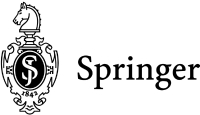4 Economic Evaluation of Mini-Plants for Mass Customization
A decentralized setting of customer-centric production units
Ralf Reichwald, Frank T. Piller, Stephan Jaeger and Stefan Zanner
TUM Business School, Department of General and Industrial Management,
Technische Universitaet Muenchen, Germany
In this chapter we
will present a new setting of mass customization value creation. Main
elements of our approach are scaleable, geographically distributed and
networked facilities - so-called mini-plants - each of them covering the
majority of all value chain activities and located in close proximity
to a particular local market. In addition, customization will be not only
limited to physical goods, but extended to customized product-service
bundles. The objective of this chapter is to examine whether such a decentralized
scenario of value creation could provide a suitable framework for the
efficient production of individualized goods. Our evaluation criteria
are economical ones, i.e. the financial effects arising from such a setting.
We will discuss whether the additional costs and hurdles of mass customization
in mini-plants can be counterbalanced by the advantages of such a decentralized
fulfillment situation (compared to both mass production and to centralized
mass customization). Advantages could arise from both (1) new cost saving
potentials as a result of a decentralized mass customization system and
(2) a higher consumers' willingness to pay for a customized solution coming
out of such a mini-plant.
|


